Are Personal Injury Settlements Taxable in North Carolina?
 You won a personal injury settlement. Maybe it wasn’t a courtroom showdown, perhaps it was settled quietly, but either way, the paperwork is signed, and the check is in your hands (or bank account). Cue the sigh of relief.
You won a personal injury settlement. Maybe it wasn’t a courtroom showdown, perhaps it was settled quietly, but either way, the paperwork is signed, and the check is in your hands (or bank account). Cue the sigh of relief.
But now comes tax season. And you start wondering if this money will come back and bite you on your tax return.
Unfortunately, the answer isn’t as clear-cut as you’d hoped. Some parts of a personal injury settlement are tax-free, while others aren’t. Whether you will owe taxes depends on what the money is for and how it’s categorized under federal and North Carolina tax laws.
Let’s break it down before you break out the calculator.
Not all settlement money is taxed
Personal injury settlements are designed to compensate victims for harm caused by someone else’s negligence or intentional misconduct. That harm could be physical, emotional, or financial, or all of the above. And the settlement often covers medical expenses, pain & suffering, emotional distress, lost wages, punitive damages, and interest accrued during the case.
However, while the settlement is meant to make you feel whole again, the IRS and North Carolina Department of Revenue have their opinions about which parts of that “wholeness” are taxable.
If this already sounds overwhelming, don’t worry. The key is understanding how different components of your settlement are treated. And yes, consulting with a personal injury lawyer and a tax professional can save you serious money (and headaches) later on.
Which parts of a personal injury settlement are tax-free or taxable?
The good news is that most traditional personal injury damages aren’t taxable, as long as they’re directly related to a physical injury or illness.
According to Internal Revenue Code and IRS Publication 4345, damages received for personal physical injuries or physical sickness are generally not taxable. That means if your compensation is for medical bills, pain from physical injuries, or emotional distress related to a physical condition, you’re in the clear.
Tax-free components may include:
- Reimbursement for past, present, or future medical expenses
- Pain and suffering that are tied to physical injury or illness
- Emotional distress tied to physical injury or illness
- Loss of consortium (the impact of the injury on your relationships or companionship)
These are viewed as compensation for what you physically endured, not income. So, they’re generally off the IRS radar, as long as documentation is clear.
Taxable components may include:
Here’s where things get dicey.
- Punitive damages are almost always taxable, even if they’re related to physical injuries or illnesses. These are designed to punish the defendant, not compensate you for harm.
- Interest earned while the case was pending (pre- or post-judgment interest) is taxable—just like interest on a savings account.
- Lost wages can be taxable if the IRS treats them like standard employment income.
- Emotional distress without physical harm is taxable. If you experienced trauma but weren’t physically injured, expect taxes on that part of your payout.
The bottom line is that if the money is to cover your physical injury or illness, it’s likely safe from being taxed. However, if it’s meant to punish the other party or compensate for delays or missed income, expect a tax bill.
Correctly classifying these components with the help of a personal injury lawyer or CPA can make the difference between a peaceful tax season and an unpleasant audit.
How does North Carolina handle it?
North Carolina typically mirrors federal tax law. If something is taxable under IRS rules, it’s taxable in North Carolina. If it’s tax-free federally, the state won’t tax it either.
As of 2024, North Carolina applies a flat personal income tax rate of 4.75% across the board. That includes any taxable portions of a personal injury settlement, like punitive damages or lost wages that aren’t tied to physical harm.
This makes accurate classification essential. A good personal injury lawyer can help you categorize your settlement correctly, separating taxable components from non-taxable ones.
For more information on how North Carolina views settlement taxation, visit the North Carolina Department of Revenue.
Common myths about personal injury settlement taxation
Myth 1: All personal injury settlements are tax-free.
Not true. Only damages tied to physical injuries or illnesses are entirely exempt.
Myth 2: If I don’t get a 1099, I don’t have to report it.
Wrong again. Even without a form, you’re legally responsible for reporting taxable income.
Myth 3: Emotional distress money is always tax-free.
The truth? Only if a physical injury causes it, otherwise it’s typically taxed.
Myth 4: Lost wages are never taxed in a settlement.
Lost wages unrelated to physical injury or illness can be taxed like regular income.
Myth 5: Once the settlement is finalized, the tax part is out of my control.
Nope. How your settlement is structured and how each component is categorized can significantly impact your tax responsibility.
Why it’s worth talking to a lawyer (and a tax pro)
Settlements are complicated. You shouldn’t have to play tax detective while recovering from an injury. A skilled personal injury lawyer can help maximize compensation and structure the outcome to protect you from unexpected tax consequences.
If your settlement includes potentially taxable items like interest, lost wages, or punitive damages, consider consulting a tax professional. They can help you avoid IRS penalties, ensure proper documentation, find deductions related to your injury or legal fees, and stay compliant with federal and NC tax laws.
Contact Price Petho & Associates to seek expert guidance on your case. Proper planning could save you thousands.

Attorney Doug Petho is the owner and founder of Price, Petho & Associates. His primary focus is the litigation of plaintiff’s personal injury suits, and he has successfully tried hundreds of cases to jury verdict involving car accidents, trucking accidents, pedestrian accidents, slip and fall accidents, and work-related accidents. Contact his office in Charlotte today.
